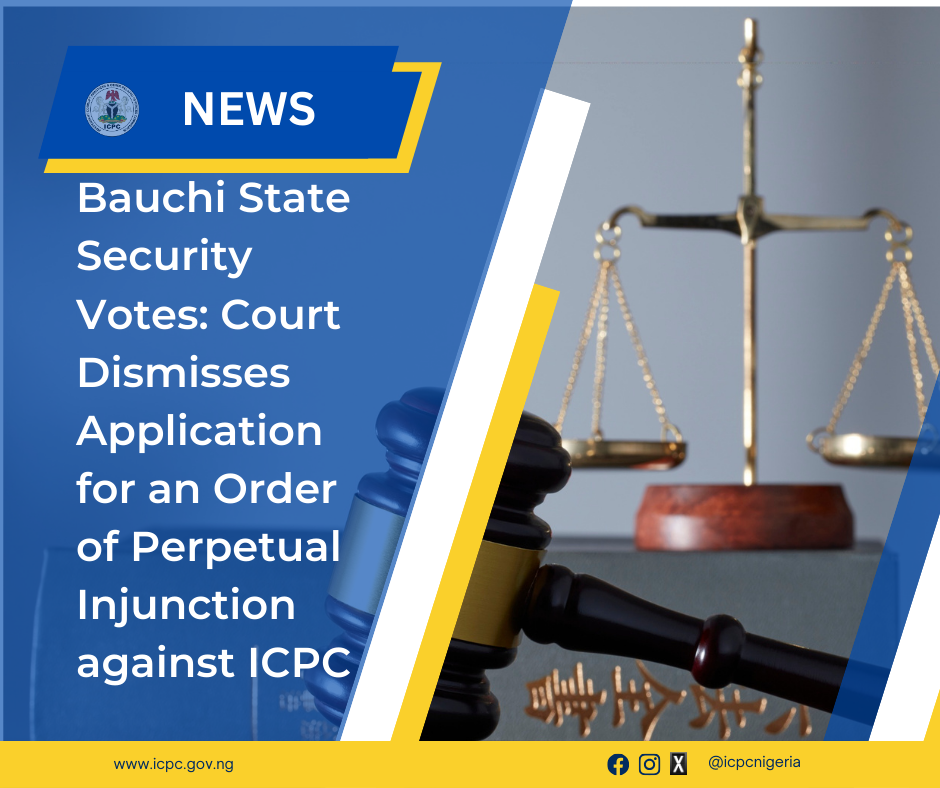A Bauchi State High Court has dismissed an application for an order of perpetual injunction that will restrain the Independent Corrupt Practices and Other Related Offences Commission (ICPC) from taking any action relating to the financial activities (in the name of security votes) of the Office of the Secretary to the Bauchi State Government.
In the suit marked BA/834M/2024, the nine applicants, under the name of “Concern Indigenes of Bauchi State” stated that they have lost confidence in ICPC, the Economic and Financial Crimes Commission (EFCC) and the Nigerian Financial Intelligence Unit (NFIU) due to their “unwillingness to discharge their duties” over the office of the Secretary to the Bauchi State Government, which according to them has been turned into a financial drainpipe against the general interest of the populace of Bauchi State.
The applicants argued that since the ICPC, EFCC, and NFIU had “deliberately failed to take actions on the numerous complaints made to them for the alleged financial infractions in the Office of the Secretary to the Bauchi State Government, they prayed for an order of the court mandating the three anti-graft bodies to hands-off the matter and hand it over to the Nigeria Police.
The lawyer to the Applicants, Mr. M. J Jaldi, in his oral argument, posited that “some of the actions of the 4th Respondents (Bauchi SSG), like payment of huge amounts of money in cash without passing through financial institutions, violate the provision of the Money Laundering (Prohibition) Act which calls for investigation by the Police.”
ICPC, in response to the Application, filed a counter-affidavit to oppose all the reliefs sought by the applicants.
The Commission and its sister-agency, the EFCC, argued that what the Applicants were attempting to do was to set the Court to be used as an instrument of subversion in the performance of their statutory mandate. They stated that the Applicants failed to present any complaints or petitions to them against the 4th to the 25th respondents.
The ICPC also contend that neither it, nor EFCC or NFIU were the only anti-corruption agencies in Nigeria and that nothing stops the Applicants from approaching other agencies of government (including the police) to investigate the alleged information of corrupt practices (against the 4th to the 25th Respondents) instead of filing for an order of perpetual injunction against the 1st, 2nd and 3rd Respondents in court.
While delivering his judgement on the matter, Honourable Justice F.U. Sarki ruled that the power of the 1st to the 3rd Respondents (ICPC, EFCC, and NFIU) to investigate and prosecute did not exclude the powers of the 26th Respondent (The Police) to also investigate and prosecute. The judge held that the Police powers are even wider and general.
“It is not within the powers of this court to restrain the 1st to 3rd Respondents from carrying out their statutory functions. The application is therefore consequently refused,” the judge ruled.


